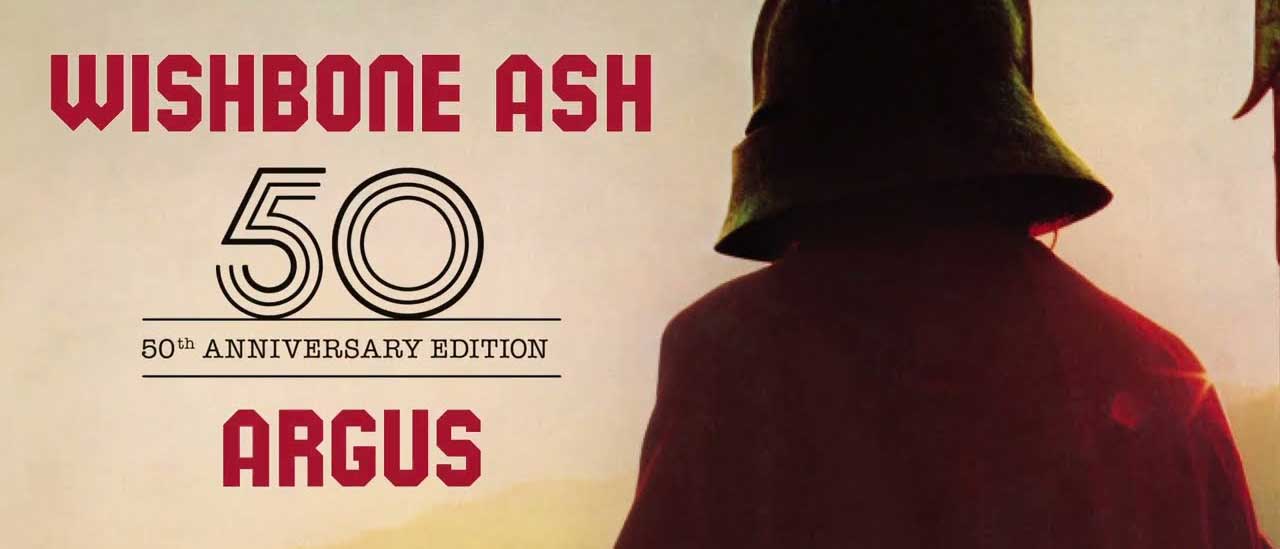You can trust Louder
Let’s set the Tardis time co-ordinates w-a-a-a-y back to December 1972. The annual rock-mag readers’ poll results are in, and the Albums Of The Year, as reported by Sounds music weekly, include entries by ELP (Trilogy), Jethro Tull (Thick As A Brick), David Bowie (Ziggy Stardust), T.Rex (The Slider) and, scraping in at the bottom of the Top 10, Deep Purple’s Machine Head.
So, which band’s release occupies the coveted No.1 spot? None other than Wishbone Ash’s Argus. Now, as someone who used to count the poll votes (and discard a fair few due to suspiciously similar fan-club and/or PR-inspired handwriting), this may seem surprising. But you know what? I reckon the Sounds scholars got it right. Because as someone once asked: Is Argus by Wishbone Ash the greatest least-known million-selling rock album ever made?
Fifty years down the line, Argus remains a class act. It’s not really hard rock, it’s not really prog, it occupies some sort of mystical netherworld in between. It’s like CSN&Y with Flying Vs. Of course, the Ash are credited with inventing the twin leadguitar duellin’ malarkey later perfected by Scott Gorham and Brian Robertson in Thin Lizzy. But here the musical approach is so exquisite – often otherworldly – that in-your-face six-string heroics are something of an anathema. (Yes, even on the near-legendary The King Will Come. Is there such a thing as a subtle headbanger?)
There are three particularly great things about this seven-disc multi-format box set. The first is a track called 30 Seconds Of Silence For Side Break. Yep, plonked between Blowin’ Free (the end of the old vinyl Side One) and the aforementioned The King (the beginning of the old vinyl Side Two) is exactly that: a half-minute of nothingness, so one can imagine flipping the original 12-incher and reapplying needle to groove. Brilliant.
The second is mainman Martin Turner’s Argus remix, which really does add new depth and dimension to the recording. On the original you can distinctly hear the tape hiss, which is in many ways part of its charm. Purists might criticise Turner’s crisp-as-white-sheets sonic approach, but to this writer it’s a real ear opener.
The third is the accompanying 48-page booklet, which isn’t the usual throwaway flim-flam. It has the feel of a quality Sunday supplement, and there’s a particularly illuminating section on Storm Thorgerson’s iconic album artwork.
There is a fourth thing, actually, but it’s something that’s been present since ’72: ‘I thought I had a girl, I know because I seen her/ Her hair was golden brown, blowin’ free like a cornfield.’ The mere action of typing those words sends shivers down my spine.
Sign up below to get the latest from Classic Rock, plus exclusive special offers, direct to your inbox!
Geoff Barton is a British journalist who founded the heavy metal magazine Kerrang! and was an editor of Sounds music magazine. He specialised in covering rock music and helped popularise the new wave of British heavy metal (NWOBHM) after using the term for the first time (after editor Alan Lewis coined it) in the May 1979 issue of Sounds.


